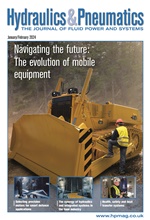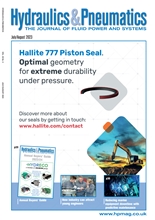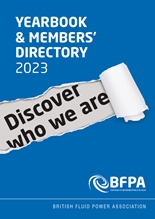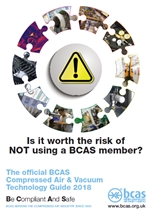CE marking post Brexit
BCAS is calling on the UK government to keep the CE mark as it leaves the EU. Vanda Jones, executive director for BCAS, said: “The CE mark plays a crucial role in ensuring that products flow freely across Europe and that they meet safety, quality and environment laws.”
The society has signed a joint paper with a number of other trade associations representing industry. Called ‘CE marking: good for business and consumers’, it points out that “SMEs exporting into the EU don’t want to be crippled by divergent regulations and manufacturers operating globally want the most efficient system, so they can innovate and bring great value goods to market. CE marking has made this happen and has had a positive impact on consumer safety, free trade and the sustainability of products.”
The paper points out that 44% of all UK trade is with the EU, so even following Brexit, every endeavour should be pursued to remove barriers to trade. CE marking forms a major part of making this free trade a reality and any British company wanting to send its products into the EU will need to get its goods CE marked.
Jones continued: “Having one set of requirements for 32 wealthy countries is beneficial to UK manufacturers who seek harmonised rules to improve the efficiency of their manufacturing processes and reduce administrative burdens, avoiding a situation where the same product would have to be tweaked to meet specific country requirements.”
The joint paper adds that “UK companies want to sell abroad and if there are different rules for the UK, the EU and elsewhere, it will be harder to design products that meet requirements on all of the destination markets. CE marking has resolved this issue. The EU has been the most attractive destination due to its location, low cost transport and single market access. With the UK set to be a ‘third country’, companies wishing to export to the EU will have to follow all EU rules as well as UK ones. There is also a risk the UK could be seen as inferior or less safe, damaging sales.
“Manufacturers do not support a separate UK marking scheme as it will make things more expensive and time consuming to make and could risk having to follow one set of rules for Europe and another for the UK,” said Jones. “The results of this will be less choice for consumers and more expensive products on the shelves.
“What is becoming increasingly clear is that manufacturers across all industries need trade associations to represent them and to make sure that their voice is heard. It is more important than ever that the compressed air industry talks with a unified voice. BCAS represents compressed air manufacturers, suppliers and end users.”
A copy of the paper ‘CE marking: good for business and consumers’ can be downloaded from www.bcas.org.uk.
-
Smart Manufacturing & Engineering Week
05 - 06 June, 2024
NEC, Birmingham -
HILLHEAD 2024
25 June, 2024, 9:00 - 27 June, 2024, 16:00
Hillhead Quarry, Buxton, Derbyshire UK










